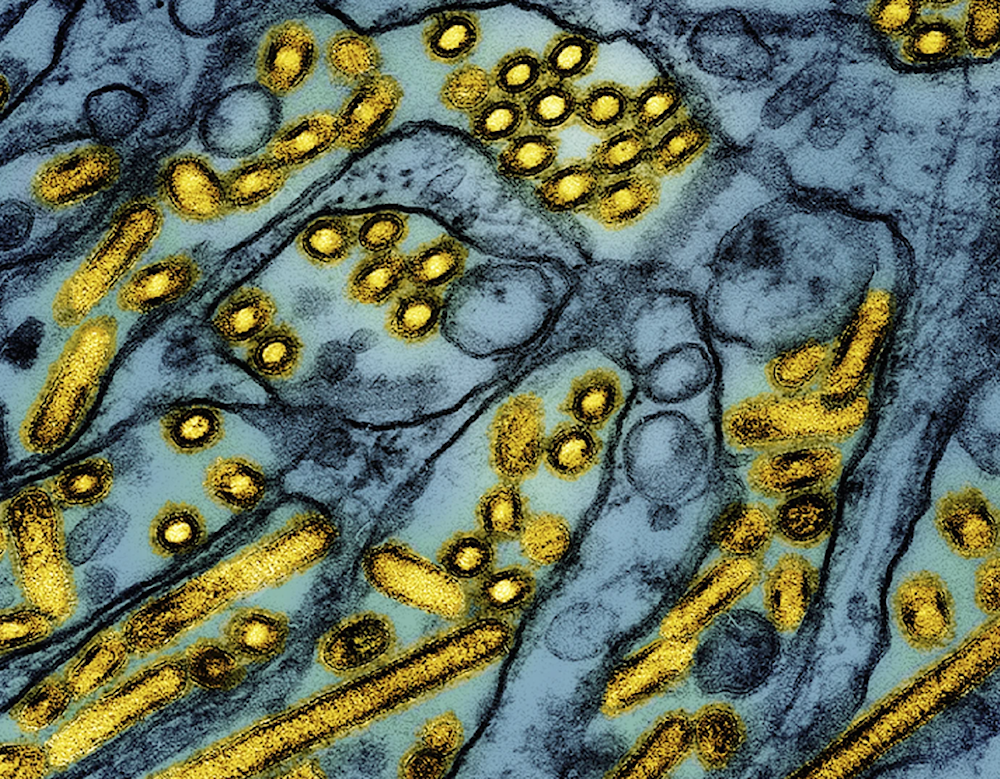H5N1 bird flu turns deadly in Mexico, first human death reported
Global health officials remain concerned about the virus' potential to evolve into a pandemic, with limited human-to-human transmission reported so far.
-

This colorized electron microscope image released by the National Institute of Allergy and Infectious Diseases on March 26, 2024, shows an avian influenza A H5N1 virus particle growing in Madin-Darby Canine Kidney (MDCK) epithelial cells. (AP)
A three-year-old girl died early Tuesday of multiple organ failure, making her Mexico's first fatal human case of H5N1 bird flu, according to health officials.
The toddler from the northern state of Coahuila was diagnosed on April 1, but Health Secretary Eliud Aguirre stated that no further cases of infection have been reported thus far.
Cambodia has recorded two H5N1-related deaths this year, including that of a child in February who slept and played near a poultry cage where around 15 birds perished. In the US, one fatality was recorded in January.
Human infections can result in serious sickness with a high death rate, according to the World Health Organization (WHO).
According to the report, the majority of human cases documented thus far have been connected to close contact with sick birds and other animals, as well as polluted settings.
"This virus does not appear to transmit easily from person to person, and sustained human-to-human transmission has not been reported," as per the WHO's website.
Scientists have expressed concern that if a person becomes infected with both bird flu and seasonal flu, the H5N1 virus may evolve into a variant that can be transmitted from person to person, potentially causing a pandemic.
According to a statement from Mexico's Ministry of Health, 38 persons who came in contact with the deceased girl, including medical workers and family, tested negative for the virus.
Last year, the UN's health agency warned that inadequate surveillance was impeding its capacity to control the risk presented to humans by the H5N1 virus.
The World Health Organization urged all countries to increase animal and human surveillance and reporting and share samples and genetic sequences.
The spread of bird flu in the United States has raised concerns due to incidents of severe disease in people, as well as worrying illnesses in domestic cats and dairy cows.
It also had a big influence on the poultry sector.
However, since President Donald Trump took office in January and issued an executive order withdrawing the United States from the global agency, Mexico's northern neighbor has almost completely cut off relations with the WHO.

 2 Min Read
2 Min Read










